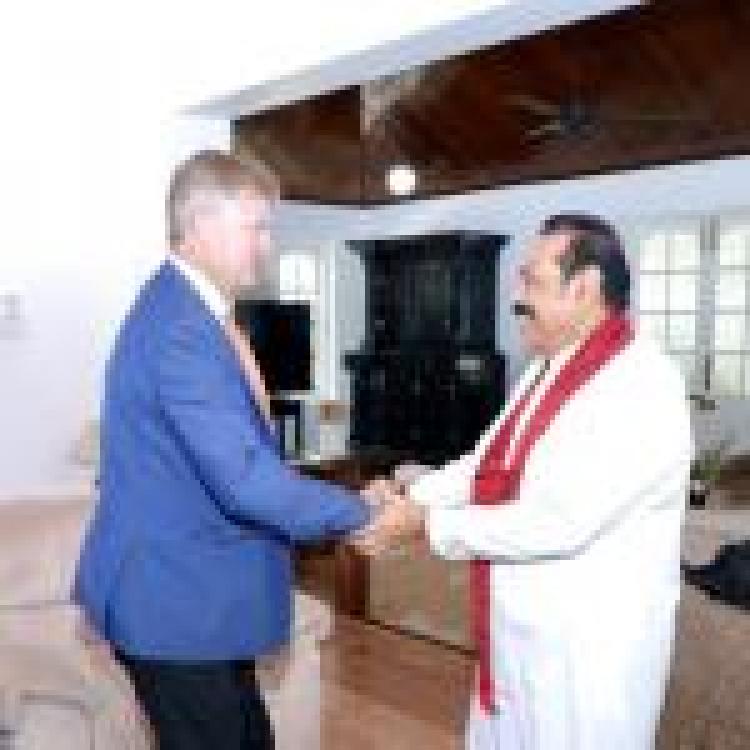.jpg)
Speaking to Virakesari newspaper, former peace envoy for Norway, and current international climate advisor for Sri Lanka’s president, Erik Solheim asserted that there is no need for “third party mediation” as the issues raised by Tamil can be solved domestically.
Noting the promise of Sri Lankan President Ranil Wickremesinghe of the release of Tamil political prisoners, and ongoing cross-party discussions on the implementation of the 13th amendment, Solheim maintained the demands of Tamils could be met internally.
“It is in this reality, all aspirations of all communities are addressed within united beautiful Sri Lanka. Accordingly, the powers will be shared and go forward to live in peace”.
This statement stands in sharp contrast to the mass protests which were held across the North and East, which maintained that the 13th amendment did not go far enough as it kept in shape the unitary structure of the Sri Lankan state.
Solheim further claimed that due to the dire economic crisis, there were as a consensus amongst all parties on the necessity “to get the collapsed economy rebuilt”. He further claimed that diaspora Tamils would be willing to reinvest once the president’s concessions had been made.
Despite the mounting criticism of President Wickremesinghe, Solheim defended his record by claiming that the “majority of the people believe that he can bring about solutions at these difficult circumstances” and argued that he should be “given the space”.
Environmental reforms
Speaking on the environment, he noted THE “potential danger that Sri Lanka will be worst affected”.
“Dry zones in the North will further become even drier while the wet zone would further become wetter. The areas in the higher elevation like hill-country, there will be more consequences like landslides in the future. Besides that, Since Sri Lanka is an island surrounded by sea on all four sides, it may have to face the sea level rising” he warns.
Solheim further spoke on the benefits of green reforms as a means of ensuring Sri Lanka has an “uninterrupted supply of power” and creating “new employment opportunities”.
He further noted the establishment of “an exclusive university for the study and research of the climatic change will also to be set up”.
Economic reforms
Speaking on Sri Lanka’s economic woes, he stressed the need for Sri Lanka to “negotiate with China, India and Japan and restructure the loans obtained from said countries”.
This, he maintains, will make it “easier to receive the financial aid from the International Monitory Fund (IMF)”.
He also urged to review the size of government services and noted that international investors would come forwards.
Read more here.


